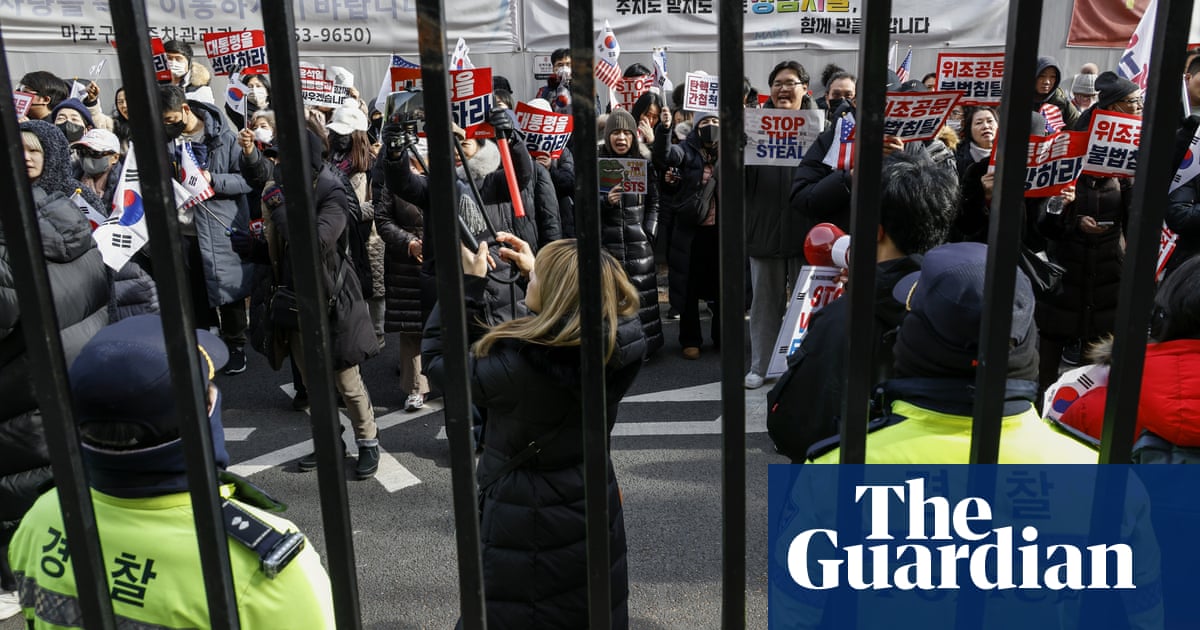The impeached president of South Korea, Yoon Suk Yeol, has argued that he be released from custody before a court in Seoul, which is considering whether to grant a request for his formal arrest.
Yoon has been in detention since being seized in a large law enforcement operation at his residence on Wednesday. He has been accused of orchestrating a rebellion after his declaration of martial law in December last year, which triggered South Korea’s most serious political crisis since its democratisation in the late 1980s.
A warrant for Yoon’s formal arrest was requested by the Corruption Investigation Office for High-Ranking Officials, which is leading a joint investigation with police and the country’s military.
Yoon’s lawyers said he spoke for about 40 minutes to the judge during the nearly five-hour closed-door hearing. His legal team and anti-corruption agencies presented opposing arguments about whether he should be held in custody. The lawyers did not share his specific comments.
The judge is expected to make a decision this weekend. Yoon’s motorcade was seen leaving the court on Saturday evening for the detention centre where he is being held.
If Yoon is arrested, investigators can extend his detention to 20 days, during which they will transfer the case to public prosecutors for indictment. If the court rejects the investigators’ request, Yoon will be released and return to his residence.
It had not been clear whether Yoon would attend the hearing on Saturday but he appeared to have accepted advice from his legal team to appear before the judge in person.
A member of the team said the president was to argue that his decree was a legitimate exercise of his powers and that accusations of rebellion would not hold up before a criminal court or the constitutional court, which is reviewing whether to formally remove him from office or reinstate him.
Nine people, including Yoon’s defence minister, police chief, and several top military commanders, have already been arrested and indicted for their roles in the enforcement of martial law.
Under South Korean law, orchestrating a rebellion is punishable by life imprisonment or the death penalty.
Yoon’s lawyers have argued there is no need to detain him during the investigation, saying he does not pose a threat to flee or destroy evidence.
Investigators responded that Yoon had ignored several requests to appear for questioning, and that the presidential security service blocked an attempt to detain him on 3 January. His defiance has raised concerns about whether he would comply with criminal court proceedings if he was not under arrest.









